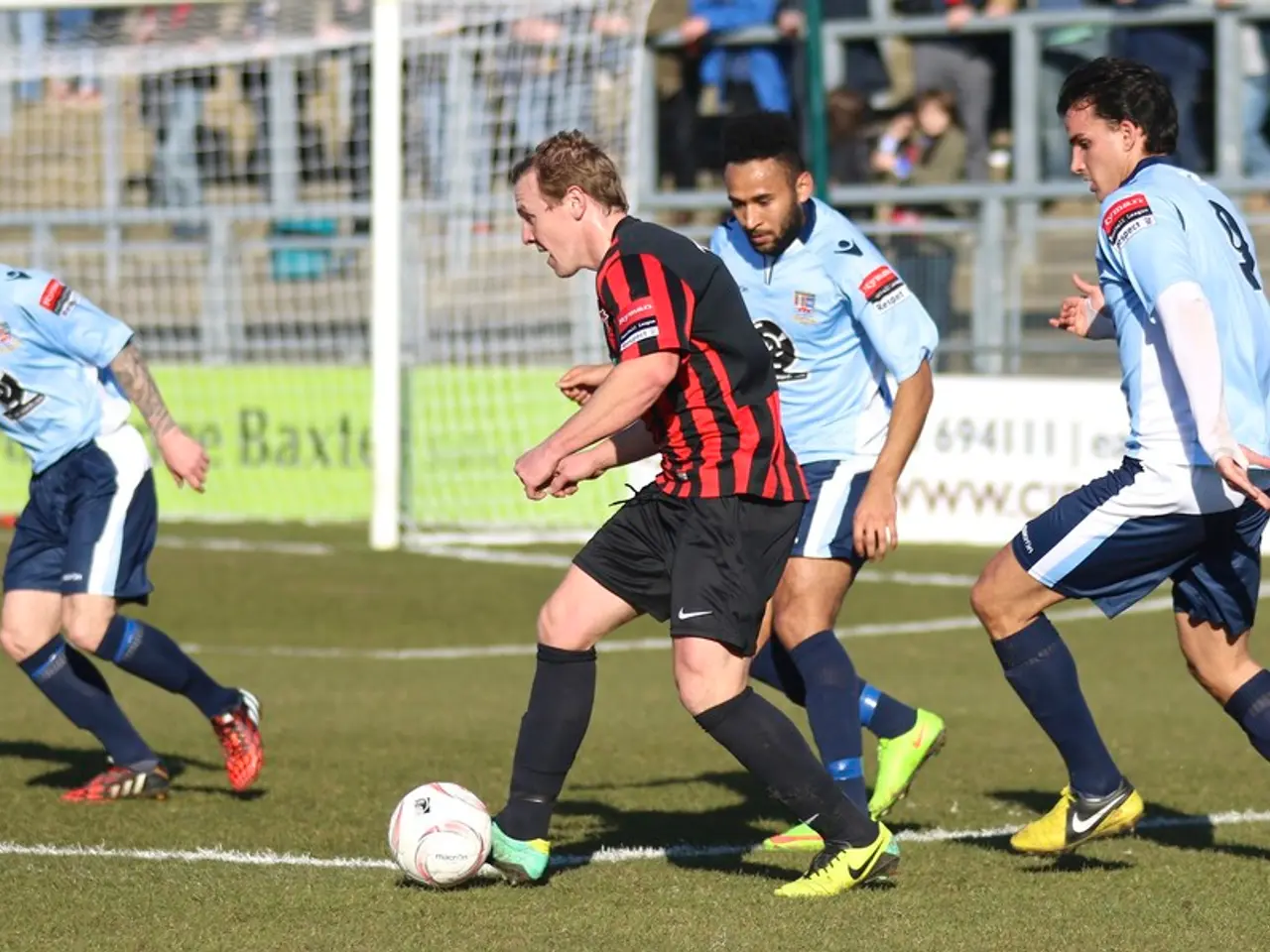Dietary habits of professional football players
In the world of professional sports, diet and nutrition play a crucial role in optimising performance and recovery. This is particularly true in the realm of football, where coaches like former head coach of the Russian men's national futsal team, Sergei Skorovich, have embraced the importance of nutrition in shaping their teams' success.
Skorovich, who enjoys cooking and would likely have been a chef and restaurateur if his life had taken a different path, has brought a unique culinary flair to the game. Most of the players under his tutelage follow a diet rich in high protein, wholegrain carbohydrates, fruits, and vegetables, while avoiding sugary foods, alcohol, and carbonated drinks.
On game days, lunch often consists of sliced tomatoes and cucumbers, dressed with olive oil, grilled chicken breast, and spaghetti Bolognese. Breakfast, however, is more restricted, with omelettes, lean ham, cheese, and sandy pastries allowed, but no scrambled eggs. The footballers' menu at "VIZ" also includes soups like chicken broth, fish soup, and fresh cabbage soup, as well as various green salads. No pork or lamb is served.
One of Skorovich's signature dishes is Uzbek plov, a rice dish cooked with lamb, carrots, onions, and raisins, which he cooked for his team at "VIZ-Sinara" after five consecutive league wins. He has also brought back various culinary-organizational impressions from tournaments in countries like Thailand, Colombia, Spain, France, and Asia.
However, not all culinary adventures have been smooth sailing. In one instance, a kitchen in Asia issued a list of what they would cook and refused to accept complaints from European teams. In such cases, Skorovich has had to explain basic cooking techniques that were unfamiliar to local chefs.
The players often have a real withdrawal from mayonnaise, especially in Ekaterinburg, where it is a common food. In fact, a "mayonnaise war" broke out when Skorovich started coaching at "VIZ", which he resolved by banning certain items.
Coaches are not restricted by strict dietary rules and can eat local cuisine on weekends or before trips, with the doctor's permission. Skorovich, for instance, enjoys reading cookbooks and watching cooking shows, comparing coaching and managing a team to cooking.
One of the most memorable additions to the team's menu came from Jorginho, a Brazilian footballer who played for "VIZ" in Yekaterinburge during the 2001-2002 season. He introduced the team to eating boiled rice with sliced bananas, a dish they had never seen before. Another Brazilian player, Robinho, was known for always wanting croissants for breakfast and borscht for lunch.
In high-level sports, food is carefully controlled to prevent doping or contamination, with teams sometimes bringing their own chefs and products. Despite the challenges, Skorovich's culinary influence has made a significant impact on the world of futsal, demonstrating that good food can indeed fuel great performance.
[1] "Nutrition for Footballers: A Review" by M.J. Gorostiaga, M.D., Ph.D. [3] "Vegan Diets for Athletes: Performance, Nutrition, and Health" by J.M. Anderson, Ph.D., R.D.N. [5] "The Role of Nutrition in Sports Performance and Recovery" by G.M. Myers, Ph.D., R.D., F.A.S.P.N.
- In the realm of football, like coach Sergei Skorovich, many coaches recognize the significance of nutrition in shaping their teams' performance and recovery, focusing on a diet rich in protein, wholegrains, fruits, and vegetables, and avoiding sugary foods, alcohol, and carbonated drinks.
- With a unique culinary flair, Skorovich has also incorporated dishes from his travels, such as Uzbek plov, into the players' menu, demonstrating that a well-balanced diet can indeed fuel great performance in sports.
- While coaches can enjoy local cuisine on weekends and before trips with the doctor's permission, they must be cautious to prevent doping or contamination, with some teams even bringing their own chefs and products to maintain dietary control in high-level sports.




